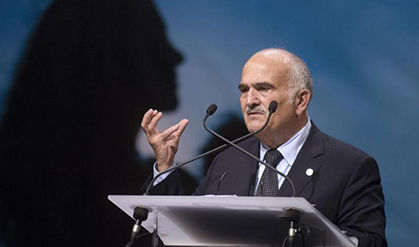We are deeply alarmed that the United Nations Security Council has not been able to reach an agreement on a draft resolution put before it on COVID 19.
This draft resolution called for an end to hostilities worldwide so that there could be a full focus on fighting the Covid-19 pandemic. If passed it would have given powerful backing to the call made earlier by the Secretary-General.
Yet, the agreement could not be reached on the resolution in the Security Council because of its reference to “the urgent need to support…. all relevant entities of the United Nations system, including specialized health agencies” in the fight against the pandemic.
The failure to reach an agreement saddens us at this time when our world is in crisis. The Covid-19 pandemic has brought about immense human suffering and is having a devastating impact on economies and societies.
It is exactly at times like this that the leadership of the Security Council is needed. It should not be silent in the face of the serious threat to global peace and security which Covid-19 represents. Global action and partnership are vital now to deal with the global pandemic and its aftermath. This is the time for the premier institution responsible for leading on global security to show strength, not weakness.
We support UN Secretary-General António Guterres in his call for an immediate global ceasefire, in all corners of the world, amid the COVID-19 pandemic. The Secretary-General’s appeal is urgent and well-founded:
• Our world faces a common enemy, COVID-19. The virus does not care about nationality or ethnicity, faction or faith. It attacks relentlessly and without discrimination. The pandemic it has caused is having wide-ranging negative impacts around the world. Every country and every nationality are affected.
• Meanwhile, armed conflicts still rage in many parts of the world., and the most vulnerable — women and children, elderly people, people with disabilities, the marginalized, and the displaced, — continue to pay the highest price. They are also among the groups at greatest the risk of suffering the devastating effects of COVID-19.
• In war-ravaged countries, health systems have collapsed. Health professionals, already few in number, have been targeted in many current conflicts. Medical supplies and equipment are often scarce. Refugees and others displaced by violent conflict are doubly vulnerable.
It is time to put armed conflict on lockdown and to come together to focus on the true fight of our lifetime: the fight against the Covid-19 pandemic.
To the warring parties, we say: pull back from hostilities; put aside mistrust and animosity; silence the guns, stop the artillery, and end the airstrikes.
A global cessation of hostilities is essential to help create corridors for life-saving humanitarian assistance; to open precious windows for diplomacy, and to bring hope to places among the most vulnerable to COVID-19.
Now is the moment to put aside war and to fight instead the deadly disease that is ravaging our world. It starts by stopping the fighting everywhere and stopping it now. That is what our human family needs, now more than ever.
As members and friends of the Nizami Ganjavi International Center, we are ready to do whatever we can to support the United Nations Secretary General in his efforts to sustain peace and prevent the deepening of hostilities.
As the UN celebrates its 75th Anniversary, there is overwhelming support for international partnership and co-operation to solve global challenges. But the United Nations Security Council must do its job and show a determination to support those fighting the pandemic and those who can support global economic recovery, social protection, and peacebuilding.
Signed:
H.R.H Prince Hassan Bin Talal of Jordan
Helen Clark, Prime Minister of New Zealand 1999-2008, Administrator of UNDP 209-2017
Noeleen Heyzer, Member of the UN Secretary-General’ s High Level Advisory Board on Mediation
Vaira Vike-Freiberga, President of Latvia 1999-2007, Co-Chair NGIC
Ismail Serageldin, Vice President of the World Bank 1992-2000, Co-Chair NGIC
Kerry Kennedy, President Robert F. Kennedy Human Rights
Rashid Alimov, Secretary General of the Shanghai Cooperation Organization 2016-2018
Abdulaziz Altwaijri, former Director General ISESCO
Hikmet Cetin, Minister of Foreign Affairs of Turkey 1991-1994, Speaker of Parliament 1997-1999
Dalia Itzik, President of Knesset Israel 2006-2009, President 2007
Mats Karlsson, Vice President of the World Bank 1999-2002
Zlatko Lagumdzija, Prime Minister of Bosnia and Herzegovina 2001-2002, deputy Prime Minister 2012-2015
Petru Lucinschi, President of Moldova 1997-2001
Rexhep Meidani, President of Albania 1997-2002, Member of the Academy of Sciences
Amre Moussa, Secretary General Arab League 2001-2011, Minister of Foreign Affairs of Egypt 1991-2001
Joseph Muscat, Prime Minister of Malta 2013-2020
Rovshan Muradov, Secretary General NGIC
Bujar Nishani, President of Albania 2012-2017
Ana Palacio, Minister of Foreign Affairs of Spain 2002-2004
Rosen Plevneliev, President of Bulgaria 2012-2017
David Pan, Executive Dean Scwarzman College, Tsinghua University
Petre Roman, Prime Minister of Romania 1989-1991, Speaker of Parliament 1996-2000
Rosalia Arteago Serrano, President of Ecuador 1997
Eka Tkeshelashvili, deputy Prime Minister of Georgia 2010-2012
Marianna V. Vardinoyannis, Goodwill Ambassador of UNESCO
Filip Vujanovic, President of Montenegro 2003-2018
Ernst Ulrich von Weizsacker, Co-President of the Club of Rome
Viktor Yushchenko, President of Ukraine 2005-2010
Kateryna Yushchenko, First Lady of Ukraine 2005-2010, President Ukraine3000 Foundation
Valdis Zatlers, President of Latvia 2007-2011






